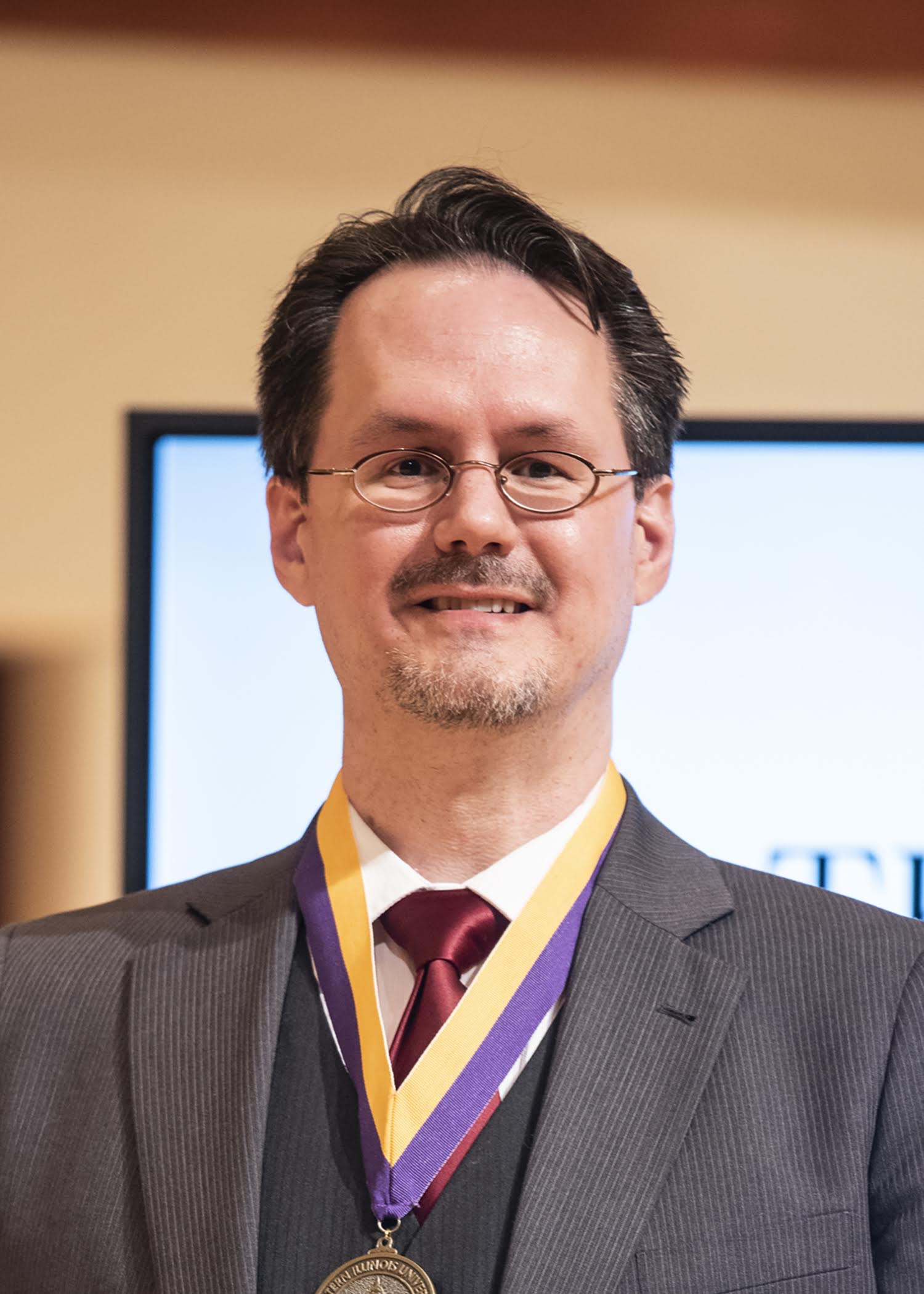School of Music
WIU Home > COFAC > Music > Faculty Staff Info
 Brian Locke, Ph.D.
Brian Locke, Ph.D.
Professor, Musicology
Sallee 214
Email: B-Locke@wiu.edu Dr. Brian Locke, a native of North York, Ontario, Canada, earned an Honours B.Mus. at Wilfrid Laurier University in 1995 and an M.A. in Musicology at the University of Western Ontario in 1997. He pursued doctoral studies in Musicology at the State University of New York, Stony Brook, with Dr. Joseph Auner and Dr. Jane Sugarman, graduating with the Ph.D. in 2002. Prior to his arrival at WIU in 2006, Dr. Locke taught at Dalhousie University (Halifax, Nova Scotia). He attained the rank of Professor of Musicology in 2016. Dr. Locke's research interests span a wide range of topics in the Romantic and Early Modernist eras, most specifically in the time period between the death of Richard Wagner and the end of the Second World War. With notable exceptions, his research has focused on the musical community of Prague (Czech Republic) as a nexus of competing ideologies of nationalism and cosmopolitanism; modernism, anti-modernism, and popular culture; and the social responsibility and political discourses of art. His book, entitled Opera and Ideology in Prague: Polemics and Practice at the National Theatre, 1900-1938, appeared in 2006 with the University of Rochester Press. 2014 saw the completion of a nine-year editing project of the full score of Otakar Zich's quasi-tonal opera, Vina (Guilt, 1922), published by A-R Edition in full score with complete translation. Dr. Locke has published several articles in major journals and books of collected essays. These include: “The Mutual Exclusion Society: Musicology and Criticism in Early Twentieth-Century Prague,” in The Cambridge History of Music in the Czech Lands, eds. Martin Nedbal, Kelly St. Pierre, and Hana Vlhová-Wörner (Cambridge University Press, 2025) “Czechoslovak Musicians in North American Exile” (co-authored with Martin Nedbal), in The Cambridge History of Music in the Czech Lands, eds. Martin Nedbal, Kelly St. Pierre, and Hana Vlhová-Wörner (Cambridge University Press, 2025) “Negotiating the ‘Concerto Grosso type’ in Paris and Princeton: Martinů’s Multi-Soloist Concertante Works from a Generational Perspective,” in Martinů and His World, eds. Aleš Březina and Michael Beckerman (Princeton University Press, 2025) “No Regrets? Krásnohorská’s Vlasta as a Libretto (Not) for Smetana,” in Bedřich Smetana and European Opera, eds. Aleš Březina and Ivana Rentsch (Königshausen & Neumann, 2025) “Eliška Krásnohorská and Czech Operatic Historiography: Reconciling the Paradox of Women’s Authorial Voices,” in Women in Nineteenth-Century Czech Musical Culture: Apostles of a Brighter Future, eds. Anja Bunzel and Christopher Campo-Bowen (Routledge, 2024) “Mortal Encounters, Immortal Rendezvous: Literary-Musical Counterpoints between Erwin Schulhoff’s Flammen and Karel Josef Beneš’s Don Juan” (co-authored with Gwyneth Bravo) in Avant-garde Opera in Interwar Czechoslovakia, eds. Helena Spurná and Kelly St. Pierre (Koniasch Latin Press, 2022) “Swing in the Protectorate: Czech Popular Music under the Nazi Occupation, 1938-1945,” in Music and World War II, eds. Pamela Potter, Roberta Marvin, and Christina Baade (Indiana University Press, 2020) “Ruthless Polyphony and Audible Silences: Musico-Dramatic Narrative in Otakar Zich’s Vina” (Theatralia: Journal of Theatre Studies, 2020) “Nested Gestalten: Genre, Polytonality, and Historicism in Martinů’s Concerto for Harpsichord, in Martinů-Studien 3, eds. Aleš Březina and Ivana Rentsch (Peter Lang, 2010) “‘Ever More Fearful Grows the Confusion’: Genre and the Problem of Musical Narrative in Schubert’s Fierrabras,” in The Unknown Schubert, eds. Lorraine Byrne Bodley and Barbara Reul (Ashgate, 2008) “Novák’s Lucerna and the Historiographical Problem of ‘Czech Modernism’” (Intersections: Journal of Canadian Music, 2008) “The Wozzeck Affair: Modernism and the Crisis of Audience in Prague” (Journal of Musicological Research, 2005) Dr. Locke's research has afforded him the opportunity for eleven research trips to the Czech Republic to date. In recent years, this research has also included a variety of new projects of different focal points, most prominently the popular music of the Prague-based music industry in the years 1918-1948. This project has resulted in long-term research on the music of Czech jazz pioneer Jaroslav Ježek (1906-1942) and the Czech-Canadian Swing composer Jiří Traxler (1912-2011); Locke is currently assisting in the archival inventory of Traxler’s musical estate in both Prague and Toronto. Other current projects include serving as co-editor for the forthcoming volume, The Cambridge Companion to Dvořák, alongside Martin Nedbal. Active as a bass vocalist, Dr. Locke has pursued the Post-Baccalaureate Certificate in Vocal Performance at WIU (2021) and continues to perform repertoire in Czech and twenty other languages.

Connect with us: